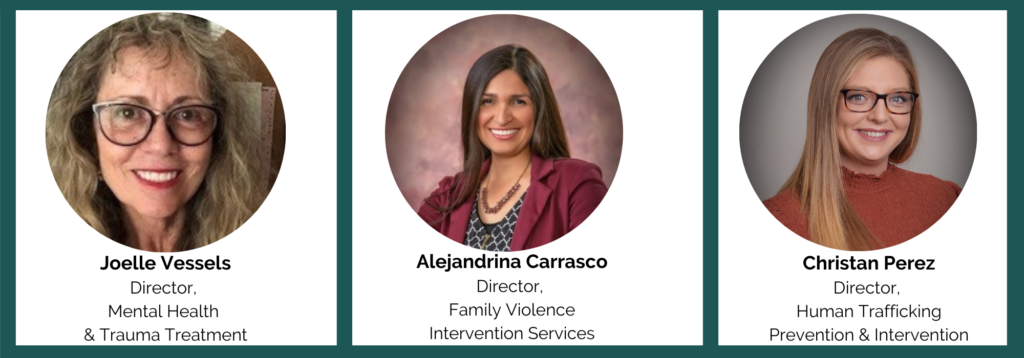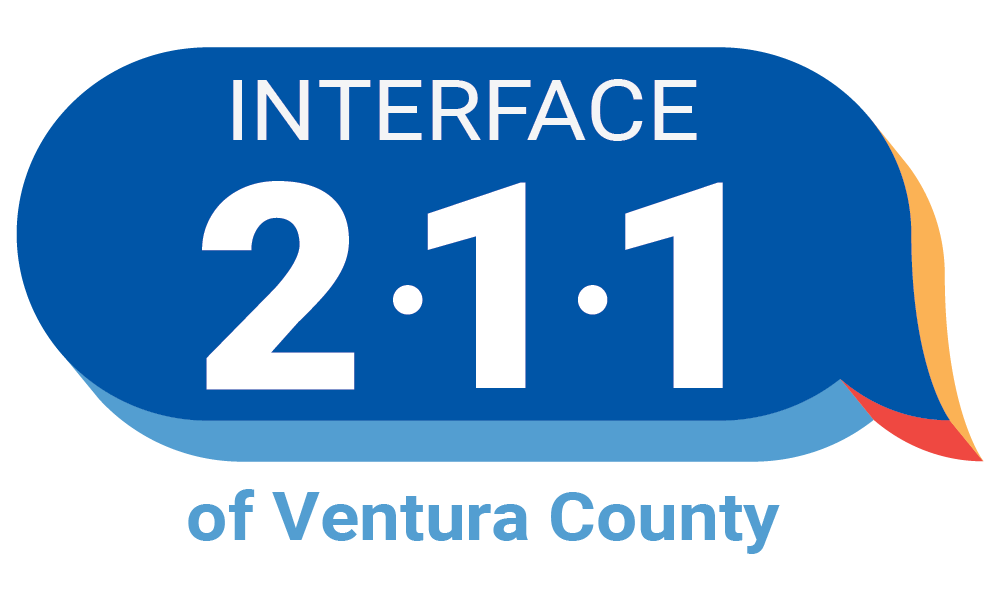 This month, we asked three of Interface’s program directors to share their thoughts about their programs and the different ways they intersect with one another to provide comprehensive care for children & families here in Ventura County.
This month, we asked three of Interface’s program directors to share their thoughts about their programs and the different ways they intersect with one another to provide comprehensive care for children & families here in Ventura County.

What do you think is one unique way that Interface approaches services and programs that might be different than other organizations?
- Joelle: I think our service coordination to meet the clinical treatment needs of women and children in our shelters, whether they are transitional or enter through one of our 24/7 hotlines, makes Interface unique. Our ability to provide in-house linkage to therapists assigned and trained for Domestic Violence and Human Trafficking services, and vice versa to provide referrals by therapists for existing mental health & trauma treatment clients who request shelter, case management, and advocacy enables us to take that extra step to support the variety of needs our clients face every day.
- Christan: Our program staff are all cross-trained Domestic Violence Counselors and Human Trafficking Case Workers. This helps us to identify indicators of both types of victimization and support survivors appropriately with the resources they need. What many people don’t understand is that there can be an intersection of domestic violence and human trafficking when victims are trafficked by family members or intimate partners. The survivors of this type of human trafficking are typically identified by our Domestic Violence Counselors who are trained to assess for indicators of human trafficking. If the survivor is believed to be trafficked, the Domestic Violence program will refer the client to our Human Trafficking Case Workers for wrap around support, where the survivor becomes eligible for additional resources to address the complexities of their trauma. Our Human Trafficking Prevention & Intervention department also integrates the Mental Health & Trauma Treatment staff into our weekly case consultation meetings to ensure that the clinicians and case managers are working congruently to support each clients’ care plan.
How do your clients benefit from the different programs that Interface offers? How do the programs work together to benefit your clients and/or their families?
- Joelle: Our Mental Health & Trauma Treatment therapists participate as part of the service teams along with the Family Violence Intervention & Prevention staff and Human Trafficking Prevention & Intervention staff. Therapists provide progress updates in case reviews and clinical perspectives.
- Alejandrina: Ventura County has a vast array of resources available for target populations. We can easily refer to additional services in-house such as mental health, DV (Domestic Violence) or HT (Human Trafficking) services, and quickly respond to and address the varying needs of the families we work with.
What do you wish the community knew about Interface and our programs/services?
- Joelle: I wish people knew about the strong collaboration between our departments that focuses on system improvements, ways to expand our services to meet the needs of our clients and our community, our new program development, the amazing training we provide, and our extensive program evaluation process to ensure that we are constantly improving to better meet the community need.
- Christan: I would like people to know that we are getting better information and learning every day. The increase of human trafficking data reflected in our reports is indicative of the increase in accurate identification, referrals, and accessibility of services. We are constantly evaluating and assessing our programs so that we can improve our support and services for victims and survivors.
- Alejandrina: We are truly a comprehensive social services agency that is invested in the healing and wellbeing of families.
To learn more about Interface programs, please visit our program overview page here.

